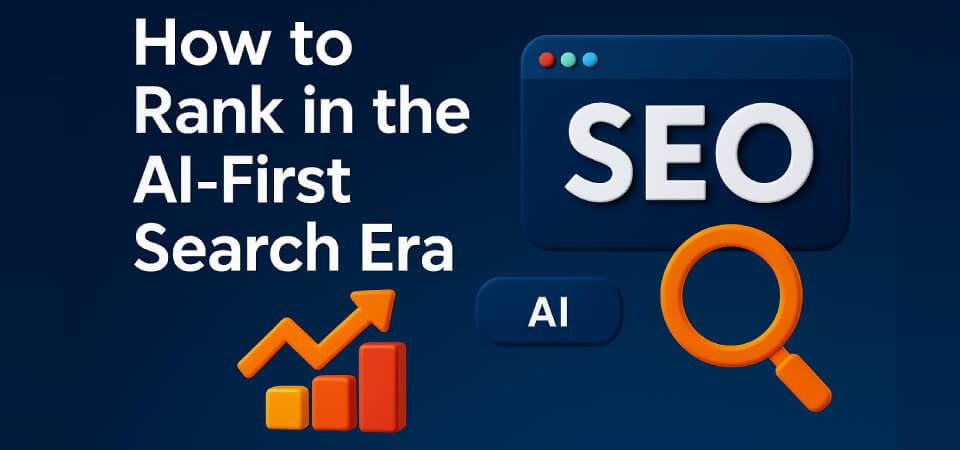
Answer Engine Optimization (AEO): How to Rank in the AI‑First Search Era
🚀 Answer Engine Optimization (AEO): How to Rank in the AI‑First Search Era
Search is evolving fast—and traditional SEO alone won’t cut it anymore. Welcome to the age of Answer Engine Optimization (AEO): optimizing content not just for blue links but to directly answer questions in AI-driven platforms like Google SGE, Bing Copilot, ChatGPT, and voice assistants.
Let’s dive into what AEO is, how it works, and how you can optimize your site to stay visible in this new AI-first search world.
🤖 What is Answer Engine Optimization (AEO)?
AEO focuses on helping AI-powered engines find, extract, and present direct answers from your content.
Unlike classic SEO which optimizes for search results pages (SERPs), AEO optimizes for:
-
Featured snippets
-
Zero-click answers
-
Voice search responses
-
AI chatbots and assistants
-
Generative search experiences (e.g., Google’s AI Overviews)
🔍 Why AEO Matters in 2025
-
AI assistants are now answering before users even click
-
Platforms like ChatGPT + Bing or SGE are summarizing your content
-
Being the source of truth = more visibility, authority, and traffic
🧠 Key AEO Optimization Tactics
1. Answer Specific Questions Clearly
-
Use H2/H3 headers with natural question formats:
-
✅ What is keyword cannibalization?
-
✅ How does schema markup help SEO?
-
-
Follow with concise, authoritative answers (40–60 words).
2. Use Structured Data & Schema Markup
-
Apply schema like:
-
FAQPage -
HowTo -
Product -
WebPage
-
-
Helps AI understand context and extract key points.
3. Build Authoritative Topical Clusters
-
Cover a subject in-depth with interconnected content:
-
Example: A pillar page on SEO → cluster pages on backlinks, technical SEO, local SEO, etc.
-
4. Leverage Conversational Language
-
Optimize for natural speech patterns and long-tail keywords
-
Ideal for voice search and AI Q&A formats
5. Optimize for Featured Snippets
-
Use bullet points, numbered lists, tables, and short paragraphs
-
Include definition-style sentences:
"An XML sitemap is a file that lists a website’s URLs to help search engines crawl the site more efficiently."
6. Include FAQs on Every Key Page
-
Add relevant, query-based FAQ sections:
...
7. Boost E-E-A-T
-
Include:
-
Clear author bylines
-
Updated content
-
Trust signals (reviews, credentials, case studies)
-
-
Show Experience, Expertise, Authoritativeness, and Trustworthiness
📊 Quick AEO Optimization Checklist
| ✅ Action | 🔄 Frequency |
|---|---|
| Add question-based headings | Every new post |
| Use schema markup | Always |
| Optimize for featured snippets | Ongoing |
| Add conversational FAQ sections | Every core page |
| Build content clusters | Monthly strategy |
| Refresh old content | Quarterly |
| Validate with AI engines | Bi-weekly review |
🧭 AEO vs SEO: What’s the Difference?
| Element | Traditional SEO | Answer Engine Optimization (AEO) |
|---|---|---|
| Focus | Rank on SERPs | Be cited in AI-generated answers |
| Format | Full-length articles | Direct answers, lists, snippets |
| Optimization Style | Keywords, meta, links | Question formats, schema, clarity |
| Ranking Metrics | Clicks, rankings | Appearances, citations, voice hits |
🏁 Final Thoughts
Answer engines are the new gatekeepers.
To future-proof your content strategy:
-
Think like an AI
-
Structure like a teacher
-
Write like a human
-
Optimize like an SEO
💡 Those who adapt to AEO now will dominate in the AI-first era of search.
